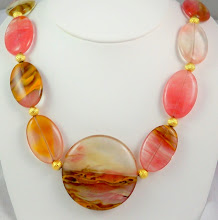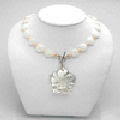.jpg) Sitting here missing New Orleans and badly wishing for a few pralines to savor, I came across a web site that made me wish I was there right now. I make pralines as gifts during the holidays but the best of them are found either in Savannah or in New Orleans. Here is a link to a fabulous shop in Savannah that has the greatest southern candies. River Street Sweets (note their photo)
Sitting here missing New Orleans and badly wishing for a few pralines to savor, I came across a web site that made me wish I was there right now. I make pralines as gifts during the holidays but the best of them are found either in Savannah or in New Orleans. Here is a link to a fabulous shop in Savannah that has the greatest southern candies. River Street Sweets (note their photo)While I looked through the site on the French Quarter I came across this interesting history of the Praline. For my fellow lovers of pralines, and all things pecan, I thought I would share their story. I am quoting them exactly, actually cutting and pasting is the correct term, and I am hoping they won't mind with a link here to their very informational site. French Quarter. The history was written by Mr. Ian McNulty.
"France to the banks of the Mississippi River"
"There are many variations on the story of how the praline came to be, but most of them revolve around the manor house of the 17th-century French diplomat Cesar du Plessis Praslin - a name that later morphed into the term for the candy. A chef in the kitchen here developed a technique for coating almonds in cooked sugar which, competing stories hold, were used by his courtly employer either as a digestive aid or as gifts to the ladies he visited. In France and elsewhere, the word praline is still used as a generic term for any sort of candy made with nuts.
These early confections traveled with Frenchmen to their new colony on the banks of the Mississippi, a land where both sugar cane and nuts were cultivated in abundance. In local kitchens, Louisiana pecans were substituted for the more exotic almonds, cream was added, giving the candy more body, and a Southern tradition was born.
The candy's winning flavor has led to worldwide popularity, and, as such things go, varying pronunciations and hybrid recipes. For the record, the local and proper pronunciation is "prah-lean," while the nut most commonly used in it is pronounced "peck-on." Just remember that, in New Orleans, a word pronounced "pray-lean" means nothing except, perhaps, a posture the supplicant faithful assume while petitioning God.
Even before the Civil War and Emancipation, pralines were an early entrepreneurial vehicle for free women of color in New Orleans. In 1901, the Daily Picayune (a predecessor to today's Times-Picayune newspaper) described in nostalgic terms the "pralinieres," or older black women, who sold pralines "about the streets of the Old French Quarter."
 They were often found patrolling Canal Street near Bourbon and Royal streets and around Jackson Square in the shade of the alleys flanking St. Louis Cathedral. And in the 1930s, the Louisiana folklorist Lyle Saxon, writing in the book "Gumbo Ya-Ya," documented praline sellers "garbed in gingham and starched white aprons and tignons," or head wraps, fanning their candies with palmetto leaves against the heat and bellowing the sales pitch "belles pralines!" to passersby."
They were often found patrolling Canal Street near Bourbon and Royal streets and around Jackson Square in the shade of the alleys flanking St. Louis Cathedral. And in the 1930s, the Louisiana folklorist Lyle Saxon, writing in the book "Gumbo Ya-Ya," documented praline sellers "garbed in gingham and starched white aprons and tignons," or head wraps, fanning their candies with palmetto leaves against the heat and bellowing the sales pitch "belles pralines!" to passersby."Today you can still find praline makers selling their wonderful candies on the streets for around a dollar each. If you have never tried one they are rich, sweet, creamy and very sinful.










They are a delicious candy. I have tried pralines from Savannah and they are wonderful. I have a microwave recipe to make them, but it is tricky to get them to set properly.
ReplyDeleteSounds yummy and very few calories ;o)
ReplyDeleteThese are sinful and fortunately, I have a place where I can buy them, fresh and warm , whenever I get a craving. Make that praw-lean, if you're a Cajun! :)
ReplyDeleteOh Marguerite, what I wouldn't do right now for a warm, fresh and oh so sinful praw-lean! My Granddaddy's people are Cajun, last name is Boudreaux. Jeanne
ReplyDeletesomething i of course have heard of, but never had the pleasure of trying (yet!)
ReplyDelete